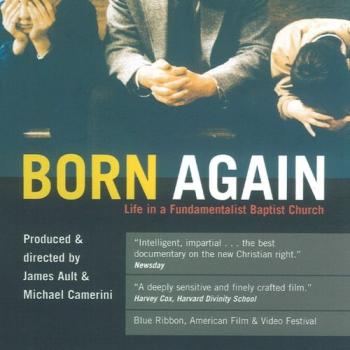R. C. Sproul R.I.P. A Great Evangelical Thinker Remembered
Last month (December, 2017) evangelicalism lost one of its most articulate intellectuals and a man who, through his many books and articles influenced me and an entire generation of evangelical Christians—mostly for the better. Robert Charles Sproul (b. 1939) passed away after a life of dedication and service to God and the Body of Christ. Throughout the 1960s until at least the first decade of the 21st century he was one of the best-known and most influential American evangelical thinkers, speakers and writers. One name especially comes to mind as another evangelical Christian leader strongly influenced by him: Charles Colson. But that’s only one of many names that could be mentioned as coming into a stronger Christian faith under Sproul’s influence.
*Sidebar: The opinions expressed here are my own (or those of the guest writer); I do not speak for any other person, group or organization; nor do I imply that the opinions expressed here reflect those of any other person, group or organization unless I say so specifically. Before commenting read the entire post and the “Note to commenters” at its end.*
My own acquaintance with Sproul, who I never met face-to-face, began when I was in seminary in the 1970s and was devouring each issue of Eternity magazine (which later ceased publication). During my seminary years I was struggling to emerge out of my cozy, little fundamentalist-Pentecostal shell into the wider evangelical world, but I had little guidance for that from within my own religious “family.” But I knew there was such a wider evangelical world because my uncle was president of our little Pentecostal denomination and on the national board of the National Association of Evangelicals. We talked about that many times. Without any encouragement from him I decided, with some help from my seminary professors, to embrace evangelicalism beyond fundamentalist-Pentecostalism as my spiritual family. It took a while.
One of my guides was Eternity magazine. I also read Christianity Today but at first found it a bit challenging—what with so many articles by Carl F. H. Henry and other evangelical intellectual heavyweights. Eternity was more accessible and popular in its approach and dealt with many issues that concerned me—such as women in ministry (which I already believed in because both my mother and stepmother and numerous women I knew were ordained ministers), contemporary Christian music (yes, that really goes back to the 1960s and 1970s!), and even homosexuality (Eternity published reviews of books about the subject such as Is the Homosexual My Neighbor?). Eternity contained a broad mix of evangelical articles and authors and I enjoyed every issue. When I feel like reminiscing about my maturing as a young evangelical would-be theologian I get out my bound volumes of Eternity and skim through them, stopping along the way to read specific articles. Sproul was then a contributor to Eternity and I found his articles extremely helpful and encouraging.
Of course, later, Sproul and I moved apart—he toward what I came to consider a more rigid and even sometimes aggressive Calvinism and conservative evangelical theology that sometimes, to me, echoed the fundamentalism I grew up in (but with a Reformed flavor). And yet his strong defenses of evangelical Christian theism impressed me and overall made a positive contribution to my early evangelical maturing.
Still, there are some things I want to say that some may consider “speaking ill of the dead” and therefore in bad taste. But let me say that nothing I tell here about Sproul is intended in any way to impugn his person or reputation. I just find some of them, if true, troubling and possibly a contribution to what I perceive as a sharp “right turn” among American evangelicals in the 1980s and 1990s. (One we are still struggling with.)
One that I know without any doubt is true—because I own a recording of it—is a public conversation before a crowd of evangelical Christians—between Sproul and John Piper about “open theism.” (I’m not going to take time or space here to explain what that is; look it up.) The conversation was especially focused on the then leading evangelical exponent of open theism—Clark Pinnock (who also profoundly influenced me during that same stage of life I spoke of earlier). The excerpt of that public conversation exists on a cassette tape sent to me by Pinnock and it does not include any date or place. I can only imagine it possibly having been before an evangelical student audience at some evangelical liberal arts college (possibly Wheaton?) in the 1990s. The recording begins with a question asked by a member of the audience addressed to Sproul. The question was about his attitude toward open theism and Pinnock specifically. There follows an approximately fifteen minute dialogue between Sproul and Piper specifically about Pinnock. Sproul unequivocally states that he does not consider Pinnock a Christian and would not have Christian fellowship with him and that he considers Pinnock’s theology “pagan.” Piper demurs and declines to agree with that judgment. Then Piper harshly criticizes open theism (not so much Pinnock) and urges audience members to avoid it. The conversation ends with Piper and Sproul agreeing on one thing—that all Arminians (Sproul labels us “semi-Pelagians”) are headed toward open theism (and that’s clearly a bad thing).
I was shocked and disappointed to hear Sproul’s harsh judgment about Pinnock. And I have to think that it may have had something to do with the fact that, at one time, as Sproul mentions, Pinnock was right there with Sproul and others—in the inerrantist and Calvinist camp of evangelical theologians. Pinnock also became charismatic, something Sproul probably did not approve.
Years later I wrote my book Arminian Theology: Myths and Realities (InterVarsity Press) in which I argue very cogently that there is a difference between semi-Pelagianism and Arminianism. (In the Sproul-Piper conversation mentioned above Sproul referred to Arminians as “semi-Pelagians.”) I wrote to Sproul and asked him if he would read my book if I sent him a complimentary copy. He wrote back and said he would. I sent him the book and included a note asking that he respond after reading the book. I never heard back from him.
Three other (possibly apocryphal) anecdotal stories about Sproul come to mind—that contributed to my wondering about a change in his attitude toward fellow evangelicals—from the time he contributed so many very helpful articles to Eternity.
One such story came from my uncle who was on the national board of the NAE. According to him Sproul attended a gathering of NAE leaders at which an Assemblies of God executive preached. According to my uncle, after the worship service and sermon, he overheard Sproul ranting and raving against Pentecostals in general—as a bane on evangelicalism because of what he considered the shallowness of their theology.
Another story came from my friend the lead editor (then) of Christianity Today magazine. According to him (told to me during a telephone conversation when I was on CT’s list of consulting editors and writing for CT frequently) Sproul went on a tirade at a meeting of the editorial board of CT when they were considering publishing a major special issue containing a unifying statement of the gospel. He insisted, with success, that the statement (which was trans-denominational in character) include a list of anathemas—beliefs contrary to the gospel. This was not congenial to the editors but they felt forced to fall into line with Sproul as he was supported by fellow very conservative Reformed theologians and leaders on the CT board. According to my source at CT, many of those who signed the original statement did not see the list of anathemas that eventually was published together with the gospel affirmation. Whether this is true or not I cannot say because I was not there. However, the source is impeccable—in my opinion. He was personally dismayed by the way that happened and its outcome. (Some of the anathemas seemed to me and to him to be extremely narrow and strict even to the exclusion of some evangelicals outside the Reformed tradition.)
Finally, a friend who is an evangelical scholar, and a man of great integrity, told me this story which he received from another friend. So this one I cannot vouch for, but I find it very interesting. It says nothing whatever against Sproul. According to the source, Sproul once visited healing evangelist Kathryn Kuhlman to discuss theology. (Throughout the 1960s and 1970s Kuhlman was a celebrity healing evangelist who held enormous healing meetings one of which I attended.) According to the source, Sproul was somewhat skeptical about the whole phenomenon of being “slain in the Spirit” which was a specialty of Kuhlman’s ministry. (I observed it myself and saw people I knew who planned to resist being slain in the Spirit fall down when she barely touched them on the forehead. I was sitting close enough in the audience to observe that she did not push. I later asked a friend who fell what happened because I knew he planned to resist. He fell twice—once when she touched him on the forehead and again when she reached down to help him stand up. He expressed some dismay and absolute bewilderment about what happened.) According to the possibly apocryphal story Kuhlman asked Sproul if she could touch his forehead. He agreed and fell down—in her office in Pittsburgh. My friend was conducting research on Kuhlman and contacted Sproul to confirm the story he heard from his source. According to him Sproul’s response was simply that whatever happened was not relevant to his research. No denial and no confirmation.
All that is to say that Sproul was throughout most of his later years an extremely influential but somewhat controversial evangelical scholar, speaker, writer, influencer. He will be missed by numerous evangelicals who benefited greatly from his ministry.
*Note to commenters: This blog is not a discussion board; please respond with a question or comment only to me. If you do not share my evangelical Christian perspective (very broadly defined), feel free to ask a question for clarification, but know that this is not a space for debating incommensurate perspectives/worldviews. In any case, know that there is no guarantee that your question or comment will be posted by the moderator or answered by the writer. If you hope for your question or comment to appear here and be answered or responded to, make sure it is civil, respectful, and “on topic.” Do not comment if you have not read the entire post and do not misrepresent what it says. Keep any comment (including questions) to minimal length; do not post essays, sermons or testimonies here. Do not post links to internet sites here. This is a space for expressions of the blogger’s (or guest writers’) opinions and constructive dialogue among evangelical Christians (very broadly defined).

















